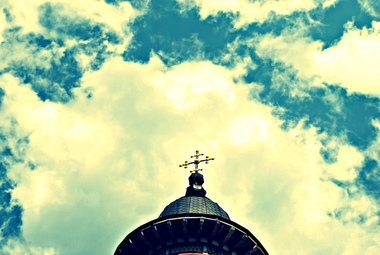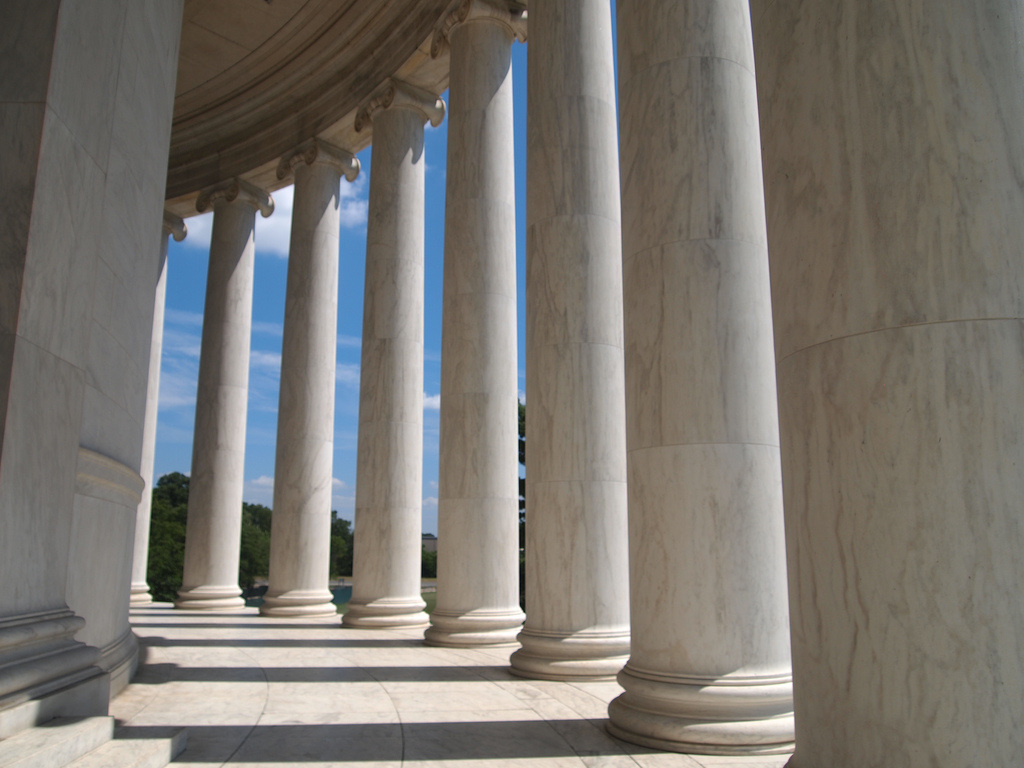Between Stockholm Syndrome and Lima Syndrome
Part 10: The Pope who would have Burned his own Father

The complexity to deal with a myriad of gods in polytheism as described in Part 9 must have been a heavy burden for our ancestors who had very limited resources. If disasters upon disasters still struck in spite of unfailing sacrifices and continuous appeasements, then which god should be blamed and held accountable? For ancient Egyptians, was it Amun, Anubis, Atum, Isis, Nut, Osiris, Ra, Seshat, or Sobek? For the Aztecs, was it Huitzilopochtli, Tezcatlipoca, Huehueteotl, Tlaloc, or Xipe Totec? For ancient Greeks was it Apollo, Artemis, Chaos, Gaia, Kratos, Mania or Zeus? Or all of the above?
Enter the revolutionary idea of monotheism, which was introduced either by Akhenaten (who ruled Egypt from 1352 to 1338 BCE), or by Abraham (the progenitor of Judaism, Christianity and Islam). The simplicity to appease a single god in monotheism was certainly quite appealing. For sure it must be much more cost effective and convenient than to deal with a dozen ones. Thus after experimenting with animism, primal religions, shamanism, idolatry, pantheism, polytheism, paganism throughout millennia, eventually Homo sapiens came to their senses and discovered the simplicity, elegance, and enlightenment of monotheism. Less is more. Humans should lived happily ever after.
Not so fast.
Unfortunately monotheism, by its very nature, came with its own dark shadows and curses. The tendency to monopolize the truth—checked. Vulnerability to black-and-white dichotomy, bigotry, zealotry, religious fundamentalism, and fanaticism—checked. Hostility against pluralism and diversity—checked. Indeed monotheism could be inherently hostile against pluralism as evidenced by theocratic states enforcing totalitarianism. Characterized by the 3Es of Exclusivity, Exceptionalism, and Ego, monotheism has nurtured fierce competition instead of spiritual enlightenment. Is the number of gods inversely proportional to the fanaticism of their believers?
Indeed among the so-called Abrahamic monotheist religions—Judaism, Christianity and Islam—horizontal (inter-) and vertical (intra-) religious conflicts and sectarian violence are not an exception; they are the norm. My religion is better than yours; my Yahweh gives me special birth rights; my Allah is mightier than your God. What's for me, me, and me does count, and nothing else at all. The Middle East—the cradle of human civilization (writing, agriculture) and the great monotheist religions (Judaism, Christianity, and Islam)—has been a hot spot plagued with sectarian violence, bloody territorial disputes, protracted wars, and suicidal nihilism since the end of World War II.
Why?
Perhaps The World Fair of Religions parable written by no less than Anthony de Mello (1931-1987), a Jesuit priest, in The Song of the Bird (1982) explains it all:
My friend and I went to the fair. The World Fair of Religions. Not a trade fair. But the competition was as fierce, the propaganda loud. At the Jewish stall we were given handouts that said that God was all-compassionate and the Jews were his Chosen People. The Jews. No other people were as chosen as they.
At the Muslim stall we learned that God was all-merciful and Mohammed his only Prophet. Salvation comes from listening to God’s Prophet. At the Christian stall, we discovered that God is love and there is no salvation outside the Church. Join the Church or risk damnation forever.
On the way out I asked my friend, "What do you think of God?" He replied, “He’s bigoted, fanatical, and cruel.” Back home, I said to God, “How do you put up with this sort of thing, Lord? Don’t you see they have been giving you a bad name for centuries?”
God said, “It wasn’t I who organized the fair. In fact, I’d be too ashamed to visit it.”
Oops. Instead of worshipping, we have been embarrassing "our God" all along … Some may vehemently protest that the aforementioned story is just a puny parable concocted by a crazy Jesuit priest, but think: What we call the Bible is actually nothing more than a collection of other parables. A parable is a parable—a simple story used to illustrate a moral or spiritual lesson—and one parable is not more legitimate than another. It's all about parables, it's all about narratives. Plain and simple, basically religions are based on nothing but narratives.
Hence religious absolutism packaged in monotheism has become another nail in the coffin of pluralism and diversity. Shameless coercion has become the name of the game. In Notes on Virginia (1785), Thomas Jefferson lamented: "Difference of opinion is advantageous in religion. The several sects perform the office of a censor morum over each other. Is uniformity attainable? Millions of innocent men, women and children, since the introduction of Christianity, have been burnt, tortured, fined, imprisoned; yet we have not advanced one inch toward uniformity. What has been the effect of coercion? To make one half of the world fools and the other half hypocrites. To support roguery all over the earth. Let us reflect that it is inhabited by a thousand millions of people. That these profess probably a thousand different systems of religion. That ours is but one of that thousand."
Here we are, more than two hundred years after Jefferson's lamentation. Religion has elicited the best—from selflessness to humanitarianism—but also the worst—from fanaticism to cruelty—in the human character. Our history has been littered with religious wars, persecutions, cruelty, violence, and zealotry. Crusades, inquisitions, reformation wars, stonings, witch-burnings, jihads, fatwas, decapitations, suicide bombings, abortion-clinic murders, religious persecutions even genocide—have been committed in the name of, who else, God. "If my own father were a heretic," Pope Paul IV (1476-1559) said, "I would personally gather the wood to burn him." In 1948, Mahatma Gandhi was killed by a Hindu zealot; in 1981, Anwar Sadat was killed by a Muslim zealot; and in 1995, Yitzhak Rabin was killed by a Jewish zealot. Even World War II, a "secular" war, is tinted with some religious overtone. "Who says I am not under the special protection of God?," Adolf Hitler famously said.
[To be continued.]
Johannes Tan, Indonesian Translator & Conference Interpreter
Enter the revolutionary idea of monotheism, which was introduced either by Akhenaten (who ruled Egypt from 1352 to 1338 BCE), or by Abraham (the progenitor of Judaism, Christianity and Islam). The simplicity to appease a single god in monotheism was certainly quite appealing. For sure it must be much more cost effective and convenient than to deal with a dozen ones. Thus after experimenting with animism, primal religions, shamanism, idolatry, pantheism, polytheism, paganism throughout millennia, eventually Homo sapiens came to their senses and discovered the simplicity, elegance, and enlightenment of monotheism. Less is more. Humans should lived happily ever after.
Not so fast.
Unfortunately monotheism, by its very nature, came with its own dark shadows and curses. The tendency to monopolize the truth—checked. Vulnerability to black-and-white dichotomy, bigotry, zealotry, religious fundamentalism, and fanaticism—checked. Hostility against pluralism and diversity—checked. Indeed monotheism could be inherently hostile against pluralism as evidenced by theocratic states enforcing totalitarianism. Characterized by the 3Es of Exclusivity, Exceptionalism, and Ego, monotheism has nurtured fierce competition instead of spiritual enlightenment. Is the number of gods inversely proportional to the fanaticism of their believers?
Indeed among the so-called Abrahamic monotheist religions—Judaism, Christianity and Islam—horizontal (inter-) and vertical (intra-) religious conflicts and sectarian violence are not an exception; they are the norm. My religion is better than yours; my Yahweh gives me special birth rights; my Allah is mightier than your God. What's for me, me, and me does count, and nothing else at all. The Middle East—the cradle of human civilization (writing, agriculture) and the great monotheist religions (Judaism, Christianity, and Islam)—has been a hot spot plagued with sectarian violence, bloody territorial disputes, protracted wars, and suicidal nihilism since the end of World War II.
Why?
Perhaps The World Fair of Religions parable written by no less than Anthony de Mello (1931-1987), a Jesuit priest, in The Song of the Bird (1982) explains it all:
My friend and I went to the fair. The World Fair of Religions. Not a trade fair. But the competition was as fierce, the propaganda loud. At the Jewish stall we were given handouts that said that God was all-compassionate and the Jews were his Chosen People. The Jews. No other people were as chosen as they.
At the Muslim stall we learned that God was all-merciful and Mohammed his only Prophet. Salvation comes from listening to God’s Prophet. At the Christian stall, we discovered that God is love and there is no salvation outside the Church. Join the Church or risk damnation forever.
On the way out I asked my friend, "What do you think of God?" He replied, “He’s bigoted, fanatical, and cruel.” Back home, I said to God, “How do you put up with this sort of thing, Lord? Don’t you see they have been giving you a bad name for centuries?”
God said, “It wasn’t I who organized the fair. In fact, I’d be too ashamed to visit it.”
Oops. Instead of worshipping, we have been embarrassing "our God" all along … Some may vehemently protest that the aforementioned story is just a puny parable concocted by a crazy Jesuit priest, but think: What we call the Bible is actually nothing more than a collection of other parables. A parable is a parable—a simple story used to illustrate a moral or spiritual lesson—and one parable is not more legitimate than another. It's all about parables, it's all about narratives. Plain and simple, basically religions are based on nothing but narratives.
Hence religious absolutism packaged in monotheism has become another nail in the coffin of pluralism and diversity. Shameless coercion has become the name of the game. In Notes on Virginia (1785), Thomas Jefferson lamented: "Difference of opinion is advantageous in religion. The several sects perform the office of a censor morum over each other. Is uniformity attainable? Millions of innocent men, women and children, since the introduction of Christianity, have been burnt, tortured, fined, imprisoned; yet we have not advanced one inch toward uniformity. What has been the effect of coercion? To make one half of the world fools and the other half hypocrites. To support roguery all over the earth. Let us reflect that it is inhabited by a thousand millions of people. That these profess probably a thousand different systems of religion. That ours is but one of that thousand."
Here we are, more than two hundred years after Jefferson's lamentation. Religion has elicited the best—from selflessness to humanitarianism—but also the worst—from fanaticism to cruelty—in the human character. Our history has been littered with religious wars, persecutions, cruelty, violence, and zealotry. Crusades, inquisitions, reformation wars, stonings, witch-burnings, jihads, fatwas, decapitations, suicide bombings, abortion-clinic murders, religious persecutions even genocide—have been committed in the name of, who else, God. "If my own father were a heretic," Pope Paul IV (1476-1559) said, "I would personally gather the wood to burn him." In 1948, Mahatma Gandhi was killed by a Hindu zealot; in 1981, Anwar Sadat was killed by a Muslim zealot; and in 1995, Yitzhak Rabin was killed by a Jewish zealot. Even World War II, a "secular" war, is tinted with some religious overtone. "Who says I am not under the special protection of God?," Adolf Hitler famously said.
[To be continued.]
Johannes Tan, Indonesian Translator & Conference Interpreter





 RSS Feed
RSS Feed